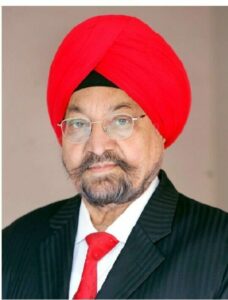
Politics, as the adage goes, is a game of scoundrels. This sentiment seems to resonate universally, albeit with varying degrees of intensity. Whether one looks at politicians from the most developed nations or those struggling with basic infrastructure, there is a shared perception that politicians constitute a unique and often confounding species. Nowhere is this more apparent than in the United States, where the political landscape often resembles a chaotic circus rather than a beacon of democratic governance.
As we stand on the cusp of another presidential election in 2024, the American populace finds itself grappling with a disheartening reality: the perceived lack of viable candidates fit for the highest office in the land. With a nation of over 342 million inhabitants, it is indeed perplexing that the choices for the presidency appear underwhelming, if not outright unsuitable.
The two individuals currently vying for the White House exemplify this dilemma. Their campaigns, rather than inspiring confidence and hope, seem mired in controversy, incompetence, and a dearth of substantive policy proposals. The question naturally arises: how did we, as a nation, arrive at this juncture where the options for our next leader seem so disappointing?
Firstly, let us acknowledge the broader context of American politics. The electoral process, while ostensibly designed to promote meritocracy and representative governance, often becomes ensnared in partisan bickering, special interests, and the omnipresent influence of money. Candidates spend exorbitant sums on campaigning, turning what should be a platform for discussing pressing issues into a spectacle of mudslinging and character assassination.
Moreover, the American electorate finds itself increasingly polarized along ideological lines. Issues that should unite the nation—such as healthcare, education, and economic prosperity—become battlegrounds for entrenched political factions. Compromise, once a cornerstone of democratic governance, has become a rare commodity. Instead, political strategy revolves around rallying a base rather than appealing to the broader spectrum of voters.
In this environment, the quality of candidates often takes a backseat to their ability to mobilize and energize their respective bases. This phenomenon has led to the nomination of candidates who may excel in rhetoric and theatrics but falter when it comes to leadership acumen and a genuine understanding of policy intricacies. Substance gives way to style, and governance becomes a casualty of political expediency.
The media, too, plays a significant role in shaping public perception of political candidates. The 24-hour news cycle thrives on controversy and sensationalism, often prioritizing headlines over substantive analysis. Candidates who can generate attention, whether through provocative statements or scandalous behavior, receive disproportionate coverage, overshadowing more qualified but less flamboyant contenders.
Against this backdrop, it is no wonder that disillusionment with the political process runs deep among American voters. Many feel disenfranchised, believing that their voices are drowned out by the cacophony of partisan warfare and media sensationalism. The very notion of public service as a noble calling has been tarnished by the perception of politics as a cynical game played by self-serving opportunists.
Yet, amidst the gloom and disillusionment, there remains a glimmer of hope. The American democratic system, for all its flaws and shortcomings, possesses a resilience born out of its commitment to principles of freedom, equality, and the rule of law. The way forward lies not in despairing over the current state of affairs but in actively participating in the democratic process.
Citizens must demand accountability from their elected representatives, holding them to the highest standards of integrity and competence. Grassroots movements and civic engagement can serve as catalysts for change, promoting a more inclusive and responsive political culture. Furthermore, reforms aimed at reducing the influence of money in politics and fostering greater transparency are essential to restoring faith in democratic institutions.
Education also plays a pivotal role in shaping the future of American politics. A well-informed electorate is better equipped to discern between genuine leadership and empty promises. Civic education programs in schools can cultivate a sense of civic duty and empower young people to become active participants in shaping their communities and their country’s future.
Ultimately, the path to reclaiming the integrity of American politics requires a collective effort. It demands that we transcend partisan divides and reaffirm our commitment to the principles upon which this nation was founded. It necessitates a reevaluation of our priorities as voters and a rejection of the politics of division in favor of a politics of unity and common purpose. As we approach the upcoming presidential election, let us not resign ourselves to the belief that politics is irredeemably broken. Instead, let us recognize the power inherent in our democratic institutions and our ability, as citizens, to effect meaningful change. The circus of American politics may be chaotic and disheartening at times, but it remains within our power to steer it towards a future defined by integrity, competence, and the common good.



Be the first to comment